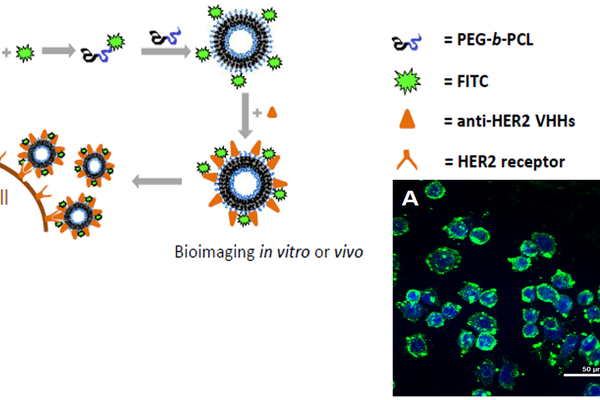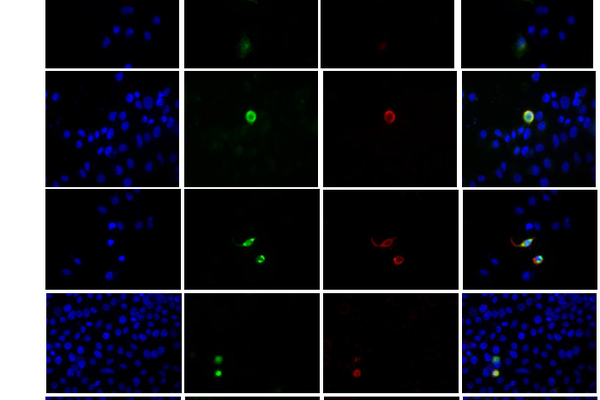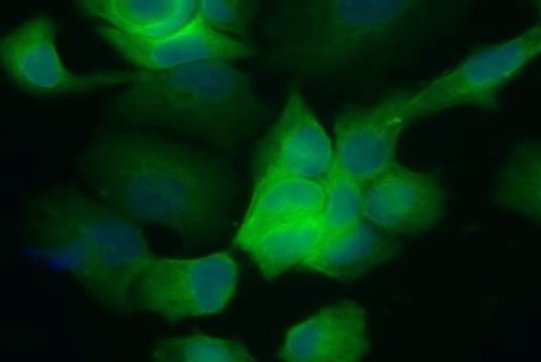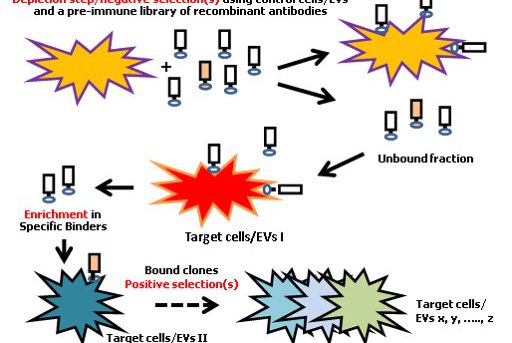Cell biology research and Biotechnology development
The lab is involved in several multidisciplinary activities that rely on the collaboration with other research groups in Slovenia and abroad. The major contributions that we can offer are in the fields of the recombinant antibody technology, the isolation of reagents for oncology and development of immune-based environmental diagnostics.
In the field of basic research, we are investigating different aspects of cellular response to pathogens (host-pathogen interactions) and environmental stressors.
The research activities are supported by national and international grants and represent appreciated training opportunities for students and young researchers at different level of their career.
Research areas
Recombinant antibody technology
We work with single-domain antibodies corresponding to the variable region of the heavy chain (VHH) of an IgG antibody. This class of antibodies, initially identified in Camelidae, represents the smallest immune-binder and such antibody fragments are therefore also known as nanobodies. Their physical characteristics (tiny dimension, elevated stability) combined with the simplicity of their engineering result in requested reagents for diagnostics and therapy. In our lab we explore different development opportunities for nanobodies, such as strategies for their optimal expression and functionalization, methodologies for rational mutagenesis to improve affinity and yields, selection protocols (library panning) to identify binders with specific features (selective for given epitopes, capable to inhibit macromolecule binding, suitable to discriminate between target isoforms).
Reagents for oncology
Reliable diagnostics and effective targeted therapies rely on the availability of biomarkers useful to distinguish between tumor cells and healthy tissues. Panning of large pre-immune libraries directly on cells has proved being an effective method to isolate antibodies –and specifically nanobodies- that can selectively recognize tumor-specific biomarkers. We contributed to isolate such selective nanobodies and to develop them into immunoreagents optimized for the different final applications (ELISA, FACS, IF, IP). Furthermore, they were successfully used to functionalize nanoparticles and biosensors, and to build chromatographic elements. Recently we succeeded in selecting nanobodies for extracellular vesicles, a step that could substantially improve the recovery and analysis of circulating nucleic acids.
Environmental diagnostics
This represents a new research field for the lab but we are encouraged by the preliminary results. Our middle-term objective is to isolate a set of binders useful for the diagnostics of pathogenic bacteria and toxic algae present in fresh and sea water.
Host-pathogen interactions
Our current research is focused on the internalization and intracellular trafficking of non-enveloped DNA viruses, with the special focus on the Human Papillomaviruses (HPV). We are particularly interested in viral infectious processes and molecular mechanisms by which viral genome is trafficked from cell membrane to the nucleus. We are also studying the non-structural properties of the HPV minor capsid protein L2, its post-translational modifications and the role of L2 in the capsid formation. In the future, we are planning to extend the existing knowledge about intracellular trafficking and receptor recycling to studies on tumour progression.




